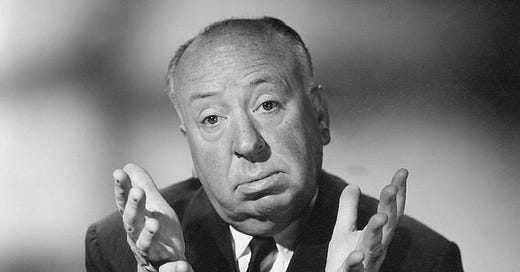Read any recently-published modern novel and there’s a reasonable chance that you’ll find a typo: a mis-placed or wrong word, perhaps some duplication within a sentence, or - the one I personally hate the most - the dreaded double space..!
It can’t be the intention of the author for those to be in the final text, so I always assume it’s a failing in the editorial process - and given linguistic standards in general are gradually falling, can we be surprised, like? If I’d like shot someone like every time I’d heard them say ‘amount’ when they should say ‘number’ then like I’d be the most prolific serial killer in history. Like.
See what I did there?!
So when Penguin or Faber or one of the big boys drop the ball, I think we have a right to be a little peeved. But what about the rest of us?
As a writer I think my job is to produce the best work I can - which is entirely different to saying that it must be perfect. And I am acutely aware that when I launch something into the world there is a chance it will not be ‘word perfect’.
The primary reason for this is that I simply don’t have a forensic ‘reading mind’. I edited The Red Tie five or six times, mainly on paper. When I gave it to my wife to read she spotted seven typos. I corrected those. When I gave it to my daughter, she found another one! Are there more? Possibly.
“Get an editor!” people say - but why should I pay $600 for a manuscript that may only be read by a few dozen people? Isn’t that throwing money away? And before you shout out, I know there are people who will argue it isn’t (and a part of me actually agrees with that). Maybe if you write one book every three or four years it makes sense…
I think my point is that, for many writers, no matter how much we strive not to, we may miss things - especially when you’re really close to a piece of work, when you know intimately what it’s supposed to say. Unless you also have a forensic reading-brain of course! Our errors are unlike Hitchcock’s ‘macguffins’, deliberately inserted and disguised because they have a role to play in the plot.
Most typos are innocent until proven guilty!
Of course you may come across texts that are simply riddled with mistakes. In such cases - especially if the writing isn’t particularly strong - you might want to ascribe that to either lack of talent, a failure to edit at all, or (much worse) working without due care. But I’d like to think that for the majority a) there aren’t so many typos, and b) that there is sufficient quality in the overall piece for the reader to cut the author a little slack - though I know readers with a certain disposition will find this an impossible request!
I posted an old story today, “Anne”, from a very old collection. It is as I left it all those years ago. I am sure it won’t be perfect, but I would hope the story is strong enough to mitigate the odd transgression.
But if found guilty, I would ask for 36,808 other offences not to be taken into consideration….





The perfect is the enemy of the good.
People who obsess about tiny errors worry me...😂
My last published book, the proof reader changed poppet to puppet. Which changed the meaning of the whole scene. Luckily, I spotted it before it went to print. They obviously didn't know a poppet is a kind of European voodoo doll. It's not common knowledge, but it seems to me, if you read the scene, it's fairly apparent. I suppose it's an unusual word. But even proof readers make mistakes, so always check their work. Puppet and poppet, it's hard to spot a difference reading through.